Q&A: What is the Al-Sweady inquiry?
- Published
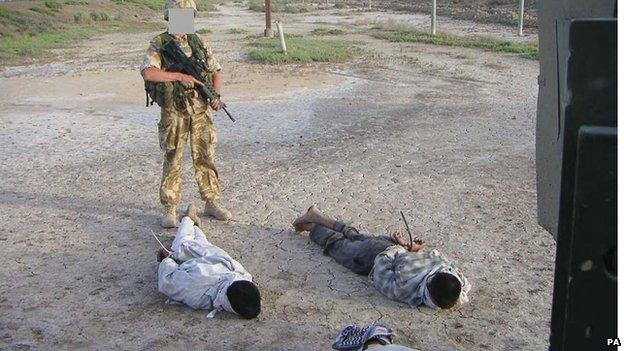
Iraqis were detained by British troops after a fierce battle
A public inquiry is due to report on allegations UK soldiers mistreated Iraqis in 2004. Why was it established and what has it investigated?
What is the inquiry about?
The inquiry has been considering allegations that the human rights of a number of Iraqi nationals were abused by British troops in the aftermath of a 2004 firefight which took place during the Iraq war.
Allegations of unlawful killing were dropped earlier this year after lawyers acting for the Iraqi families and surviving detainees said there was "insufficient evidence".
It has cost millions of pounds and heard evidence from hundreds of British and Iraqi witnesses over 168 days of hearings.

What happened on 14 May 2004?
Soldiers from the Argyll and Sutherland Highlanders and the Princess of Wales Royal Regiment were ambushed by insurgents, leading to a three-hour gun battle. The fight included the use of bayonets.
It became known as the "Battle of Danny Boy" - named after a British checkpoint near the town of Majar al-Kabir in southern Iraq.
After the battle, an order was issued to take the bodies of dead Iraqis to a nearby military base, Camp Abu Naji. The British Army said it wanted to check whether one of the dead was an insurgent thought to have been involved in the killing of six Royal Military Police officers in 2003.
It said nine Iraqi men were also taken captive and they all stayed alive.
Lawyers for the families of Iraqis claimed others were taken alive, murdered and mutilated - but those claims, denied by the Ministry of Defence (MoD), British troops and their lawyers, were later dropped.

What is the history of the legal proceedings?
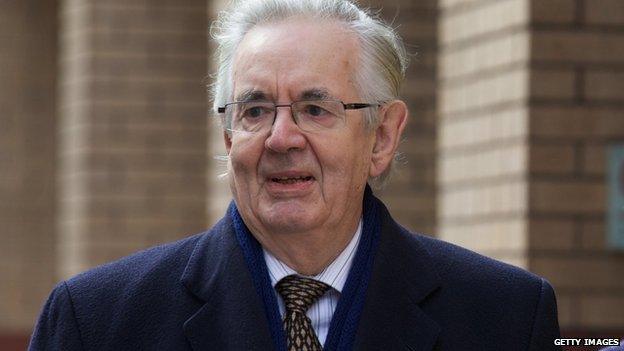
Sir Thayne Forbes chaired the probe
At a High Court judicial review in 2009, Khuder Al-Sweady, an Iraqi national, claimed that his 19-year-old nephew, Hamid Al-Sweady, was unlawfully killed while in the custody of British troops at Camp Abu Naji.
Five of the nine men taken captive by the Army also alleged in the judicial review that they were mistreated by British soldiers while in custody at Camp Abu Naji and when later detained - for about five months - at Shaibah Logistics Base.
The Ministry of Defence faced fierce criticism from the High Court during the action brought by the Iraqis.
Judges said disclosure of documents related to the claims of abuse and unlawful killings had been "lamentable".
That prompted then defence secretary Bob Ainsworth to announce an inquiry to look at the allegations.
Retired High Court judge Sir Thayne Forbes, who oversaw the trial of serial killer Dr Harold Shipman, was appointed as its chair.

When did the inquiry start?
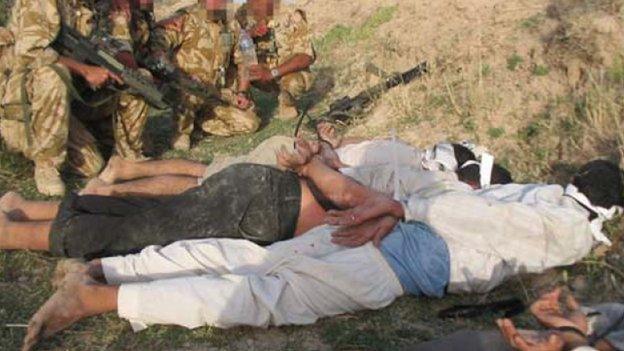
The facts were "hotly disputed", an inquiry spokeswoman said
The first stage of the inquiry, which searched for relevant documentation and other materials, began in 2010. Oral hearings began in March 2013, with evidence from Iraqi witnesses being heard from March to July.
Those who gave evidence or provided witness statements included the nine detainees and relatives of 20 men who died. Some of the witnesses came to London to give evidence while others gave evidence via video link from the Middle East.
The first British military witnesses began to give evidence on 2 September 2013 and continued into the new year.
The final submissions by core participants were made on 16 April 2014.

Why has it taken so long?
An inquiry spokeswoman said it had to approach more than 600 military personnel and about 100 Iraqi witnesses and had searched thousands of files of paper and digital material.
That facts were "hotly disputed", and events took place 10 years ago in another jurisdiction, also helped to explain the length of the inquiry, she added.

What did the Iraqis want to know?
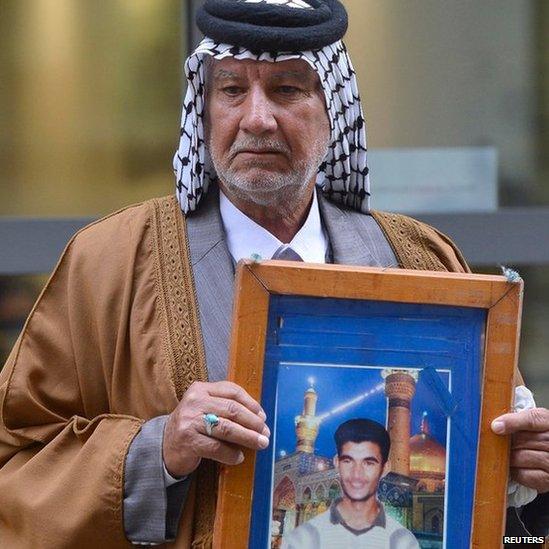
Mizal Karim Al-Sweady, seen holding a picture of his son, gave evidence at the inquiry
All nine detainees made complaints, heard in the first phase of oral hearings, about the way they were treated and interrogated.
Those men are named in Al-Sweady inquiry papers as Hamzah Joudah Faraj Almalje, Mahdi Jasim Abdullah Al-Behadili, Ibrahim Gattan Hasan Al-Ismaeeli, Kadhim Abbas Lafta Al-Behadili, Abbas Abd Ali Abdulridha Al-Hameedawi, Ahmed Jabbar Hammood Al-Furaiji, Hussein Fadhil Abbas Al-Behadili, Atiyah Sayyid Abdulridha Al-Baidhani and Hussein Gubari Ali Al-Lami.
Five of the men were aged 20 or under at the time, two were aged 18 and one was aged 17.
Their main allegations made in the oral hearings included that they were beaten on capture and when transported to Camp Abu Naji, strip-searched during "processing" and questioned "oppressively", with abuse shouted, threats made and guns fired.
They also alleged they were hit, threatened, abused, deprived of sleep and subjected to tapes of screaming at Shaibah Logistics Camp.

What does the MoD say?
The MoD insists the allegations are unproven and that it has never found any credible evidence to support them.

How much has it cost?
As of 31 October 2014, the inquiry has cost £24.4.m.
- Published20 March 2014
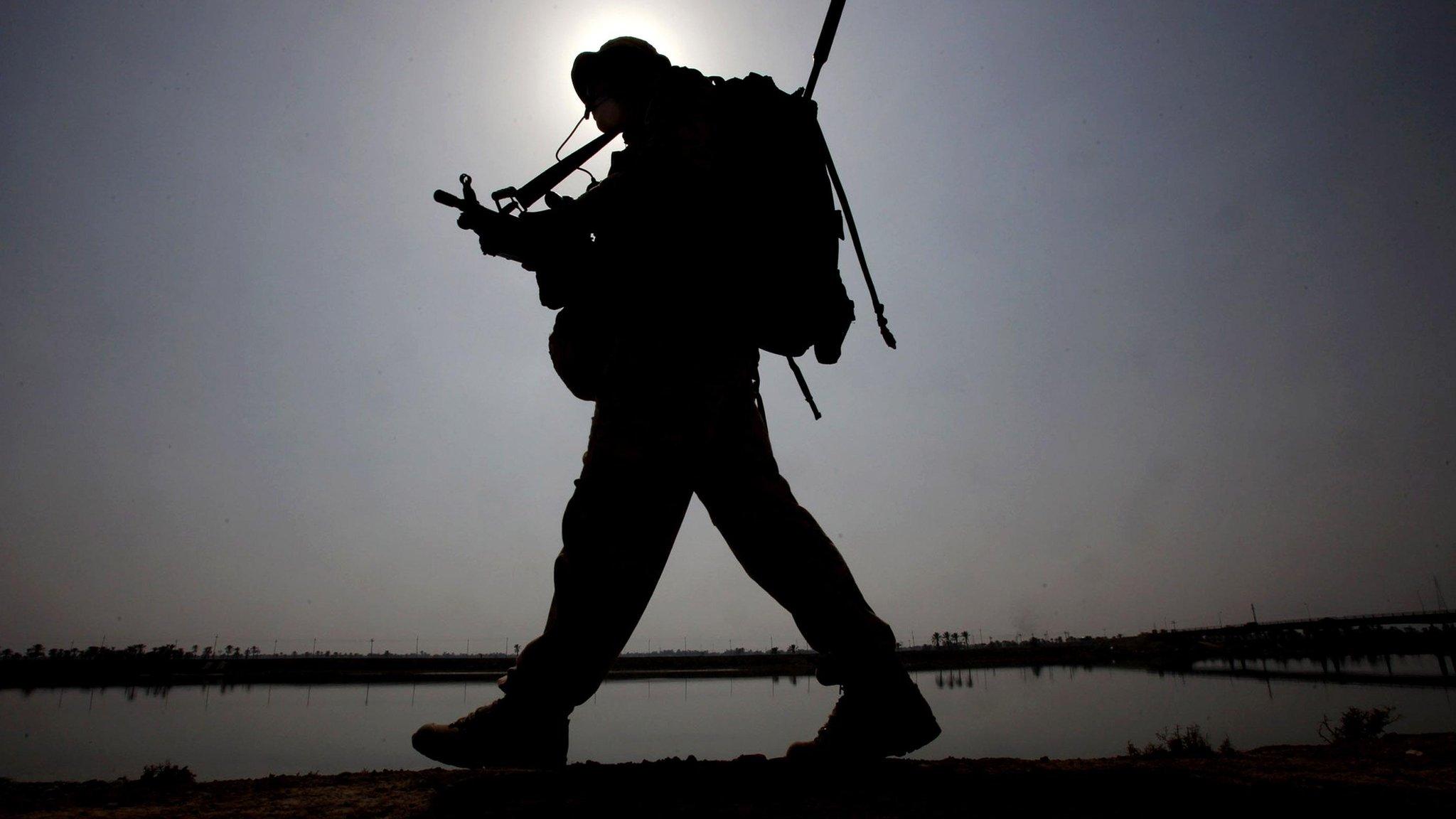
- Published4 September 2013

- Published2 September 2013

- Published18 April 2013
